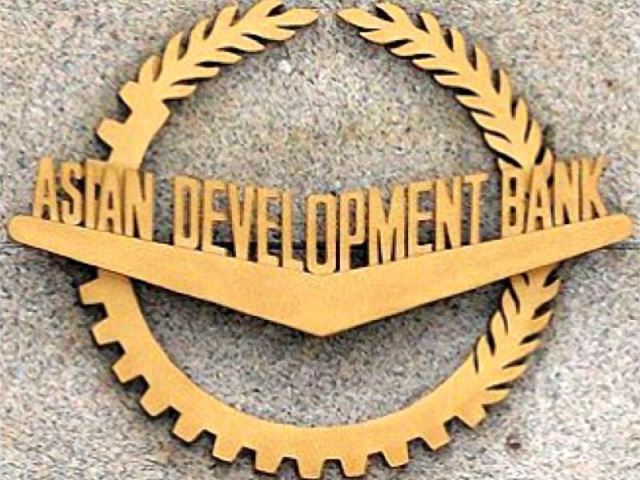ADB approves $500m loan for budgetary support
Restores policy-based lending after keeping it blocked for over two years

PHOTO: STOCK IMAGE
The ADB board of directors approved the $500 million in budgetary support under the $800-million Trade and Competitiveness Support Programme. The loan approval was pegged with introduction of a new legislation and approval of e-commerce policy by the federal cabinet.
The ADB and the World Bank had suspended budgetary support for Pakistan in 2017 after its macroeconomic conditions started deteriorating. Although the macroeconomic conditions still remain fragile, the international lenders have decided to restore budgetary support in the wake of the three-year Extended Fund Facility of the International Monetary Fund (IMF).
Pakistan seeks $1b budgetary support from ADB
The IMF has projected $4.3 billion in budgetary support from the World Bank and the ADB from 2019-20 to 2021-22. Out of the $4.3 billion, the IMF has shown $2.3 billion in budgetary assistance from the ADB, which is 54% of the projected support. The IMF has projected inflow of $800 million from the ADB in the current fiscal year, although Islamabad is seeking at least $2.1 billion from the bank.
Islamabad has also formally requested the Manila-based lending agency to provide the loan through the Special Policy-Based Lending (SPBL) instrument. The SPBL is a crisis response facility offered by the ADB as part of its international rescue efforts to help meet foreign payment obligations. In addition to that, the government is expected to receive $300 million for capital market reforms and another $300 million under the energy reforms programme.
Pakistan is heavily dependent on international creditors for current account deficit financing, repayment of maturing debt and building foreign currency reserves. It will need at least $25.6 billion in the current fiscal year to meet these three obligations.
Pakistan and the ADB signed the $500-million loan agreement on Wednesday. The agreement was inked by Economic Affairs Division Secretary Noor Ahmed and ADB Country Director Xiaohong Yang. Minister for Economic Affairs Hammad Azhar witnessed the loan signing. The government expects to receive the payment at the weekend, which will provide cushion to the foreign exchange reserves held by the State Bank of Pakistan.
“The ADB has a 53-year history of strong partnership with Pakistan and we are pleased to be in a position to provide this important support for the country’s economic reform programme,” an ADB statement quoted its Vice-President Shixin Chen as saying. The Trade and Competitiveness Programme focuses on addressing the structural issues obstructing Pakistan’s export competitiveness through reforms in areas of tax and tariff rationalisation, as well as institutional strengthening, according to the ADB.
“Moving forward, the ADB is committed to providing wide-ranging support to strengthen Pakistan’s economy and reduce the risk of external economic shocks,” it added.
Challenge for Pakistan is to sustain growth levels: ADB
Supported by the IMF, the ADB and other development partners, the government has now committed to a range of structural reforms in the country’s trade environment to improve its export performance, reduce the current account deficit and drive economic growth, said the ADB.
The Trade and Competitiveness Programme will introduce important tariff and tax-related policy reforms to support Pakistan’s export industries and increase their competitiveness internationally and will also strengthen key trade facilitating institutions such as accreditation bodies, Exim Bank of Pakistan and the National Single Window.
“Trade is an important pillar of Pakistan’s overarching development objective to foster economic stability and sustainable high growth,” said ADB Director General for Central and West Asia Werner Liepach.
Hammad Azhar acknowledged the ADB’s support for Pakistan. He said Pakistan’s exports were concentrated in less sophisticated and lower value-added products and lacked diversification and innovation. The minister was of the view that the ADB’s policy-based lending would not only strengthen foreign exchange reserves but would also provide fiscal space to the government and boost economic activities in the country.
The minister reiterated that the government was fully committed to improving governance, introducing economic reforms and achieving sustainable development. The government aims to put Pakistan’s economy on the path of sustainable and balanced growth and increase per capita income.
He emphasised that the ADB should further scale up its assistance to Pakistan both for programme lending and project financing.
Xiaohong Yang stated that the ADB fully supported the government’s development vision and policies. She pointed out that the ADB was providing support for policy reforms and project financing in key priority areas such as energy, road, social sector, water and irrigation, and urban services.
Published in The Express Tribune, August 8th, 2019.
Like Business on Facebook, follow @TribuneBiz on Twitter to stay informed and join in the conversation.



















COMMENTS
Comments are moderated and generally will be posted if they are on-topic and not abusive.
For more information, please see our Comments FAQ